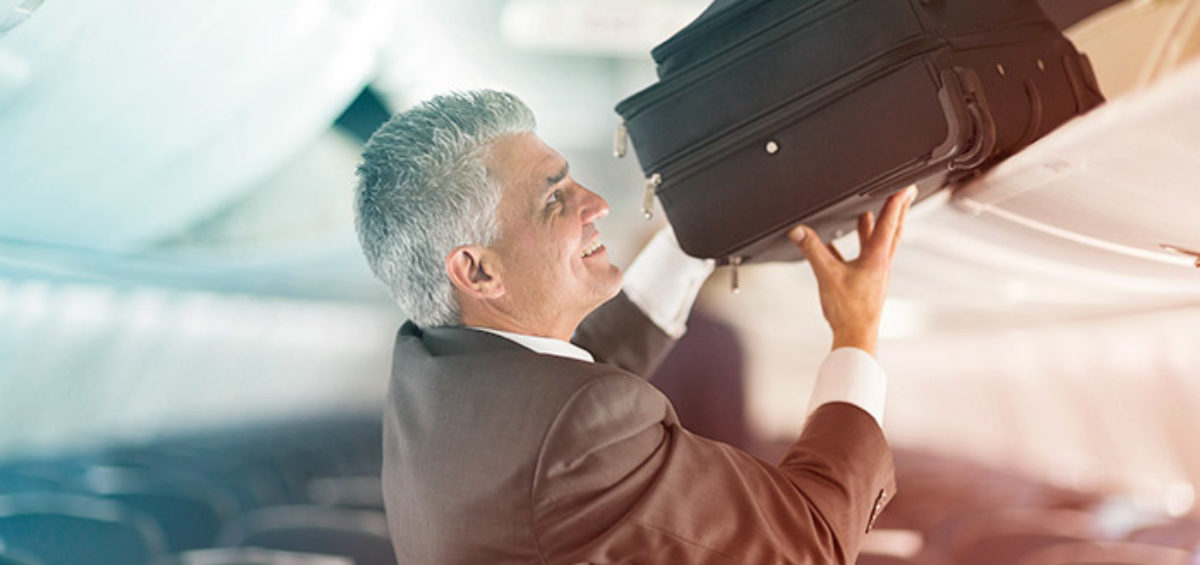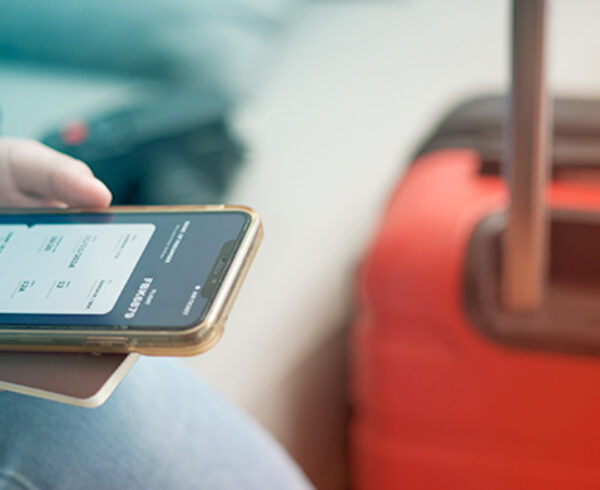A Guide to Basic Economy Fares for Business Travel
[This post was updated in September 2019 to reflect the latest information on the Basic Economy Fare.]
In a case of “follow the leader,” the third- and fourth-largest U.S. airlines have adopted a new fare class designed to boost profits. No. 1 American Airlines and No. 3 United have emulated No. 2 Delta by introducing a new Basic Economy Fare class designed to offer cost savings to passengers by further limiting features included with standard economy class seating.
Here’s a warning to the wise:
Pay special attention to the “small print!” JTB USA Business Travel advises Business Travelers and Travel Managers to carefully consider costs versus reduced benefits to determine if the lower fares are really worth the reduction in services and potential hassles from other restrictions.
Meanwhile, No. 4 Southwest Airlines in early 2017 announced that it was not going to follow Delta’s lead, based on not wanting to change passenger expectations about its brand. “Any time we contemplate offering customers a choice, we debate that heavily because complexity drives confusion and it clouds the brand,” said Southwest CEO Gary Kelly during a January conference call to discuss the airlines earnings.
Delta Airlines was the first to initiate the “Basic Economy” fare class in select U.S. and international markets back in 2012 as a trial run to test customer response. In 2015, they expanded implementation to most markets in its current format. American and United Airlines both introduced their new Basic Economy fare in 2017. The major carriers adopted the new fare structure in response to rapidly growing competition from ultra-low-cost discount airlines, such as Allegiant, Frontier and Spirit. These carriers charge low fares, but then add fees for a wide range of standard features already included in most airlines’ economy fare class.
Business Travelers and Travel Managers should carefully consider costs versus reduced benefits to determine if the lower fares are really worth the reduction in services and potential hassles from other restrictions.
Here’s a look at how leading carriers approach the basic economy fare:
[updated in September 2019]
Alaska Airlines
Alaska Airlines calls its basic economy “Saver Fares.” These Saver Fares launched in January 2019. While you can bring a carry-on and while you get a seat assignment at booking, you will board last and get a seat at the rear of the plane. Also, you have only 24 hours after booking to cancel or change your flight. After that, you’re locked in with a Saver Fare.
Allegiant Air
Allegiant Air is purely basic economy. Almost all services and perks are à la carte when flying Allegiant, so you pay for seat selection, carry-ons, printing your boarding pass at the airports, changes and cancellations.
American Airlines
American has made a slight change to its basic economy that launched on Sept. 5, 2018: You’ll be able to bring a free carry-on bag. That said, American’s basic economy fares continue to include no seat assignment until check-in, placement in the last boarding group and no access to the overhead bin.
American’s basic economy fare on international flights allows passengers to bring a carry-on for free — but checked bags are still not included in the fare.
Delta Air Lines
Delta is the original basic economy fare provider, though its basic economy has become even more basic through the years. Today, basic economy passengers get seat assignments at check-in, and there are no upgrades, changes or cancellations after purchase. Basic economy passengers can bring a free carry-on, but checked bags are $30 each way.
Delta also offers basic economy on international flights, which adds a $60 fee for the first checked bag in addition to the same limitations as with domestic basic economy fares.
Frontier Airlines
Similar to Allegiant, Frontier is purely basic economy. You will always pay for carry-on bags, checked bags, seat assignments and changes to your itinerary.
Hawaiian Airlines
At this point, Hawaiian Airlines offers no version of basic economy.
Hawaiian Airlines just launched its basic economy in 2019. Restrictions on this new fare class include: no ticket changes, restrictions on earning miles, no seat assignments prior to boarding, as well as boarding in the final group.
Hawaiian Airline’s move to basic economy is widely seen as a response to low-cost carrier Southwest, which started selling flights to Hawaii in 2019.
JetBlue
Like Hawaiian Airlines, JetBlue is adding basic economy in 2019. Late in the year, JetBlue will launch basic economy fares that include restrictions on boarding and changes/cancellations. JetBlue will allow basic economy passengers to bring free carry-ons (as long as they fit under the seat), and the company is committed to ensuring basic economy passengers won’t “feel like second-class citizens.”
Southwest Airlines
As noted above, Southwest Airlines’ CEO is on record as saying the company has no plans to introduce basic economy.
Spirit Airlines
Spirit falls into the same category as Allegiant and Frontier — all fares are basic economy. You can bring a personal item onto the plane for free, but you get charged for carry-on bags, seat assignments (prior to check-in) and changes or cancellations.
Sun Country Airlines
Sun Country offers so-called “Grab & Go” fares that are similar to basic economy. One personal item is free, but you get charged for carry-ons, checked bags and seat selection.
United Airlines
United allows basic economy fare passengers to choose their seats starting 48 hours before departure — for a small fee. Basic economy passengers board in the last group, and they can only bring a personal item. Carry-ons and checked bags are available for a fee. Also, group and family seating is not available.
United started offering basic economy on international flights in June 2018. These international basic economy fares are similar to economy fares, though passengers have to pay $50 for their first checked bag, and there are no changes, upgrades or refunds available.
For example, a recent Basic Economy fare from United offering round trip travel from Minneapolis to Denver was listed at $136, $40 less that the standard economy fare. The same flight on discount carrier Frontier Airlines came in at $88, which represents a substantial savings. While added frills are going to up the cost of both the discount flight and United’s Basic economy fare, Frontier’s fees for these frills generally run higher, and there are more of them:
- Pick your seat— Frontier: $6 per flight / United: n/a
- Seat upgrades— Frontier: $15 to $100 / United: n/a
- Checked bags—Frontier: $20 for first; $30 for second / United: $25
- Carryon bags that don’t fit under forward seat— Frontier: $30-$35 / United: $25
- Gate-checked bags—Frontier: $50 / United: $25 with advance notice, $50 without
- Soft drinks & snacks—Frontier: $2 to $3 / United: free
Thus, with a few added frills, the cost of the Frontier flight can catch up to the cost of the same Basic Economy flight from United.
A breakdown of the fares, restrictions and reduced benefits
These Basic Economy fares are $20 to $40 cheaper on average per round trip than standard Economy fares. The reduced features and added restrictions are essentially the same for all 3, with 1 notable exception: Basic Economy ticket holders on United and American are not allowed to stow carryon baggage in the overhead bins, while Delta’s Basic economy fare comes with no such restriction.
American and United Basic Economy ticket holders will be charged both the standard checked baggage fee plus a $25 gate service charge if they show up at the boarding gate with a personal item that will not fit under the seat in front of them.
All 3 airlines’ Basic Economy fare include the following restrictions:
- Non-refundable and non-changeable tickets
- No advanced seat selection
- No paid or complimentary upgrades
- No same-day confirmed
- No same-day standby
- No same-day flight change
- Last to board
As always, membership does have its benefits
Some of these restrictions are waived for the airlines’ mileage membership and credit card program customers, depending on the level of membership and other factors. Additionally, Basic Economy still allows for mileage accrual in these programs, though at reduced mileage and awards for some program levels. Basic Economy ticket holders also get the same seats, free soda and snacks, and any other amenities offered in the main cabin.
Business travelers and travel managers can purchase Basic Economy tickets much the same as any other fare class, whether by the airline website, airline reservation agent, or through a travel agent. The new fare is not offered in all markets, and the markets where offered are subject to change. American is currently offering it in only 10 markets, while United’s Basic Economy service begins April 18. Delta, with a big head start, offers the fare for 100s of its markets, and plans to continuously expand upon that number.
The Bottom Line: Is the potential hassle worth saving a few dollars?
While the overhead baggage restrictions may represent enough of a disincentive for many business travelers, the non-refundable, non-changeable, and no flight-change clauses will ward off those travelers whose business requires flexibility and ease of changing travel plans. In short, Basic Economy class fares are probably only feasible for business travelers and travel managers whose companies’ budget mindedness takes priority over travel flexibility. Additionally, such budget-minded business travelers who cannot travel exceptionally light with their carry-ons, should probably restrict their Basic Economy fare search to Delta for the sake of that overhead stowage.
P.S.: No word on whether the major airlines’ strategizing on the Basic Economy fare considered following the lead of Irish discount airline Ryanair, which became notorious for its planned restrictions on in-flight toilet usage. But here at JTB USA, we doubt it, given the warning shot fired by the U.S. Congress with its bill—Comfortable and Fair Flights Act of 2015—that would prohibit airlines from charging in-flight toilet usage, and require aircraft to have “an adequate number of functioning lavatories.”














Leave a Comment